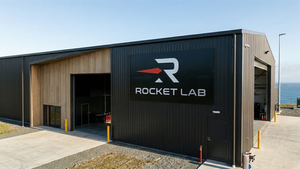DETROIT, March 11, 2024 (GLOBE NEWSWIRE) -- Southeast Michigan Resilience Fund partners today announced $1.5 million in grant funding to five projects that will benefit communities and wildlife habitats in southeast Michigan. The grants awarded by the National Fish and Wildlife Foundation (NFWF) will leverage $900,000 in matching contributions to generate a total conservation impact of more than $2.4 million.
These investments will strengthen regional resilience and improve water quality for communities by installing green infrastructure, increasing urban tree canopy and restoring riparian and floodplain habitat. The projects selected for funding will provide habitat for wildlife such as migratory birds and pollinators and while also creating and enhancing public green space.
“The Southeast Michigan Resilience Fund is prioritizing grantmaking where the needs of communities and nature meet,” said Jeff Trandahl, executive director and CEO of NFWF. “The grants awarded today will enhance the way communities engage with nature by creating public green space, enhancing the quality and connectivity of habitat, and reducing the impact of climate change through green infrastructure.”
“We are pleased to continue EPA’s participation and investment of Great Lakes Restoration Initiative dollars in the communities of Southeast Michigan,” said Teresa Seidel, director of the U.S. Environmental Protection Agency’s Great Lakes National Program Office. “These projects will deliver tangible results to these communities that have for too long been underserved.”
The projects supported by these grants will:
- Add 3.8 million gallons of stormwater storage
- Plant more than 100 trees to increase stormwater storage and habitat
- Restore 29 acres of habitat
- Improve the quality and connectivity of the region’s unique habitats
- Improve quality of life by increasing public access to natural areas and parks through multiple new access points and 2.5 miles of trails
“We are honored to join our partners in the National Fish and Wildlife Foundation Resilience Fund. The collaborative effort supports the critical work being done in our communities to improve water quality in southeast Michigan and in our Great Lakes ecosystem,” said Melissa Damaschke, president of the Fred A. and Barbara M. Erb Family Foundation.
Seven corporate, foundation and government funding partners have joined NFWF to support the Southeast Michigan Resilience Fund, including:
- Cleveland-Cliffs
- Fred A. and Barbara M. Erb Family Foundation
- The Kresge Foundation
- The Ralph C. Wilson, Jr. Foundation
- The U.S. Environmental Protection Agency
- The U.S. Fish and Wildlife Service
- The U.S. Forest Service
Southeast Michigan Resilience Fund 2024 grant recipients include:
- Detroit Zen Center, to expand green stormwater infrastructure and public green space using community education, accessible green roofs, bioretention gardens and native plants.
- Trinity Health Michigan, to improve recreation spaces and restore mature forests, wetlands, meadowlands and a prairie on Trinity Health Ann Arbor’s hospital campus.
- Wayne State University, to implement a large green infrastructure plan using native plant species to improve stormwater capture and increase green spaces within the Jefferson-Chalmers neighborhood.
- Detroit Hives, to transform eight vacant lots by installing public green spaces and rain gardens and integrating native plants to attract pollinators and reduce stormwater runoff.
- St. Suzanne Cody Rouge Community Resource Center, to improve green stormwater infrastructure by building and maintaining rain gardens, continuing youth and adult education programs, and developing long-term solutions to protect native plants and pollinator habitat.
Since 2018, the Southeast Michigan Resilience Fund has awarded 39 grants totaling more than $9.2 million, leveraging an additional $11.5 million in matching contributions to generate a total conservation investment of more than $20.7 million.
To learn more about the Southeast Michigan Resilience Fund and the projects announced today, please visit nfwf.org/semichigan.
About the National Fish and Wildlife Foundation
The National Fish and Wildlife Foundation (NFWF) works with the public and private sectors to sustain, restore and enhance the nation’s fish, wildlife, plants and habitats for current and future generations. Chartered by Congress in 1984, NFWF has grown to become the nation’s largest private conservation grant-maker, funding more than 21,600 projects and generating a total conservation impact of $8.1 billion. NFWF is an equal opportunity provider. Learn more at nfwf.org.
About Cleveland-Cliffs
Cleveland-Cliffs is the largest flat-rolled steel producer in North America. Founded in 1847 as a mine operator, Cliffs also is the largest manufacturer of iron ore pellets in North America. The Company is vertically integrated from mined raw materials, direct reduced iron, and ferrous scrap to primary steelmaking and downstream finishing, stamping, tooling, and tubing. Cleveland-Cliffs is the largest supplier of steel to the automotive industry in North America and serves a diverse range of other markets due to its comprehensive offering of flat-rolled steel products. Headquartered in Cleveland, Ohio, Cleveland-Cliffs employs approximately 28,000 people across its operations in the United States and Canada.
About Fred A. and Barbara M. Erb Family Foundation
The Fred A. and Barbara M. Erb Family Foundation, founded in 2009, advances environmentally healthy and culturally vibrant communities in metropolitan Detroit and a flourishing Great Lakes ecosystem. This year the Foundation will award about $14 million in grants. In 2022 it announced its intention to spend down its assets by 2035. For more information, visit www.erbff.org.
About The Kresge Foundation
The Kresge Foundation was founded in 1924 to promote human progress. Today, Kresge fulfills that mission by building and strengthening pathways to opportunity for low-income people in America’s cities, seeking to dismantle structural and systemic barriers to equality and justice. Using a full array of grant, loan, and other investment tools, Kresge invests more than $160 million annually to foster economic and social change. For more information visit kresge.org.
About the Ralph C. Wilson Jr. Foundation
The Ralph C. Wilson, Jr. Foundation is a grantmaking organization dedicated primarily to sustained investment in the quality of life of the people of Southeast Michigan and Western New York. The two areas reflect the devotion of Ralph C. Wilson, Jr. to his hometown of Detroit and greater Buffalo, home of his beloved Buffalo Bills NFL team. Prior to his passing in 2014, Mr. Wilson provided that a significant share of his estate be used to continue a life-long generosity of spirit by funding the Foundation that bears his name. Based in Detroit, the Foundation began with a grantmaking capacity of $1.2 billion over a 20-year period, which expires January 8, 2035. This structure is consistent with Mr. Wilson’s desire for the Foundation’s impact to be immediate, substantial, measurable, and overseen by those who knew him best. For more information visit www.rcwjrf.org.
About the U.S. Environmental Protection Agency
The Great Lakes National Program Office (GLNPO) coordinates U.S. efforts with Canada under the Great Lakes Water Quality Agreement (GLWQA) to restore and maintain the chemical, physical and biological integrity of the Great Lakes Basin Ecosystem, which includes Lakes Superior, Michigan, Huron, Erie, and Ontario. GLNPO brings together federal, state, tribal, local, and industry partners under the strategic framework of the Great Lakes Restoration Initiative (GLRI) to accomplish the objectives of GLRI action plan which in turn fulfills the aims of the GLWQA. For more information about the GLRI Great Lakes Restoration Initiative (GLRI) | US EPA.
About the U.S. Fish and Wildlife Service
The mission of the U.S. Fish and Wildlife Service is to work with others to conserve, protect and enhance fish, wildlife, plants and their habitats for the continuing benefit of the American people. We are both a leader and trusted partner in fish and wildlife conservation, known for our scientific excellence, stewardship of lands and natural resources, dedicated professionals, and commitment to public service. For more information on our work and the people who make it happen, visit fws.gov.
About the U.S. Forest Service
Established in 1905, the Forest Service’s mission is to sustain the health, diversity, and productivity of the nation’s forests and grasslands to meet the needs of present and future generations. The agency manages 193 million acres of public land, provides assistance to state and private landowners, and maintains one of the largest forestry research organizations in the world. Public lands managed by the Forest Service provide 20 percent of the nation’s clean water supply and contribute more than $13 billion to the economy each year through visitor spending alone. The agency also supports sustainable management on about 500 million acres of private, state and tribal forests including forests in urban areas. For more information, visit www.fs.usda.gov.
###

Rob Blumenthal National Fish and Wildlife Foundation (202) 857-0166 rob.blumenthal@nfwf.org





